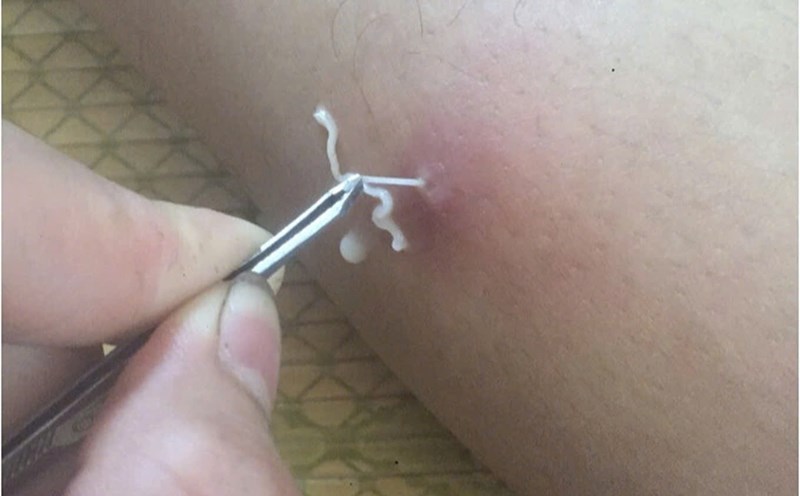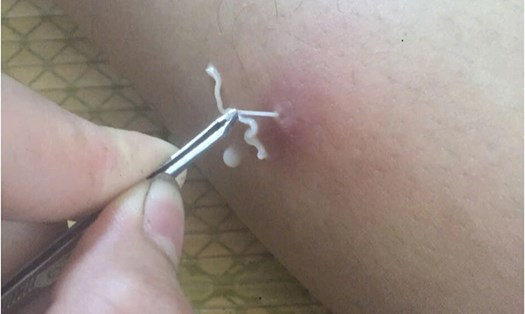Street-aying eel worms are a dangerous parasite that can cause serious complications, especially in people with weakened immune systems.
Patient B.V.C was hospitalized with continuous high fever, oxygenation and physical exhaustion. Initial diagnoses showed that the patient had pneumonia, meningitis and sepsis. The results of the brain-dead epidemic test showed E. coli bacteria, along with examination of stomach and throat flu and detection of eel worm Larvae, confirming the diagnosis of disseminated eel worm infection.
A month before being admitted to the hospital, the patient began to have symptoms of severe cough, shortness of breath, fatigue and prolonged fever. However, he self-treated at home but the symptoms did not improve, leading to a worsening condition and had to be hospitalized at the provincial level. After 6 days of ineffective treatment, he was transferred to a higher level.
Doctor Tran Van Bac - Deputy Head of the Emergency Department, Central Hospital for Tropical Diseases - said that the patient had many underlying diseases such as high blood pressure, heart failure, adrenal insufficiency, osteoarthritis, and had a history of prolonged use of corticosteroids, which seriously weakened the immune system. In addition, agricultural work, direct contact with soil without protection, is a factor that increases the risk of eel worm infection.
Eel worms are a parasite that lives in moist soil, and the larvae can enter the body through the skin, especially the feet. Once inside the body, the larvae move through the blood to the lungs, disrupting the capillaries, then penetrating the respiratory and digestive tracts, where the worms grow and lay eggs. They can form a re-infection cycle in the intestines and stay in the body for a long time. For people with weakened immune systems, eel worms can spread to organs not in the normal life cycle of parasites, such as the nervous system, skin, liver, heart, leading to sepsis, pneumonia, meningitis and septic shock.
Currently, the patient is being actively treated, on a ventilator, using antibiotics and parasitic drugs. However, the patient's prognosis is very poor.
Dr. Bac also warned that most acute eel worm infections have no obvious symptoms. Initial signs may be itchy rashes at the insect's presence, or abdominal pain, diarrhea, and loss of appetite. People with chronic eel worms often do not have serious symptoms, but in people with weakened immunity, the disease can flare up strongly, causing multiple organ damage and threatening their lives.











